A thesis statement is the backbone of any academic paper. It serves as a roadmap that guides the reader through the writer’s argument and sets the tone for the entire piece. Crafting a strong and effective thesis statement is crucial to ensure the success of your essay or research paper.
In this comprehensive guide, we will explore the importance of a thesis statement, discuss its key components, provide step-by-step instructions on how to craft one, and highlight common mistakes to avoid. By the end of this article, you will have all the tools you need to create an impactful thesis statement template for your academic writing needs.
Table of Contents
What is a thesis statement?

A thesis statement plays a crucial role in academic writing. It serves as a concise summary of the main point or argument of your paper. By presenting a clear and specific thesis statement, you provide your readers with a roadmap to follow throughout your essay. It helps you stay focused on your topic and prevents your writing from becoming aimless and disjointed. Moreover, a strong thesis statement helps you establish your credibility as a writer and gives your work a sense of direction and purpose.
Defining a Thesis Statement
Before we delve deeper into the importance of a thesis statement, let’s first define what it is. A thesis statement is a concise statement that encapsulates the main argument or position of your paper. It is typically found at the end of your introduction paragraph and provides a clear and specific answer to the main question or problem posed in your research. In essence, it states your stance on the topic and provides a roadmap for the rest of your paper.
Role of a Thesis Statement in Academic Writing
A thesis statement serves several important functions in academic writing. First and foremost, it helps you establish the purpose of your paper and informs your readers about the main point you will be making. It sets the tone for your entire essay and guides the reader’s understanding of your argument. Additionally, a thesis statement helps you structure your paper by providing a roadmap that outlines the main points or arguments you will be discussing. It also helps you stay focused on your topic and prevents your writing from becoming too broad or unfocused.
Furthermore, a well-crafted thesis statement can also serve as a motivator for your research. When you have a clear and specific thesis statement, it gives you a sense of purpose and direction in your research process. It helps you narrow down your focus and identify the key sources and evidence you need to support your argument. This focused approach allows you to delve deeper into your topic and uncover new insights and perspectives.
Moreover, a strong thesis statement not only benefits the writer but also the reader. It provides a clear preview of what the reader can expect from the essay, allowing them to anticipate the main arguments and evidence that will be presented. This helps the reader engage with the material more effectively and enhances their overall reading experience.
In conclusion, a thesis statement is a vital component of academic writing. It serves as a concise summary of your main argument, provides a roadmap for your essay, and helps you stay focused on your topic. A well-crafted thesis statement establishes your credibility as a writer and gives your work a sense of direction and purpose. So, next time you sit down to write an essay, remember the importance of a strong thesis statement and let it guide you through the writing process.
Thesis Statement Templates
Key Components of a Strong Thesis Statement
Now that we understand the importance of a thesis statement, let’s explore the key components that make it strong and effective. A well-crafted thesis statement should possess the following characteristics:
Clarity and Precision
A strong thesis statement clearly communicates the main point or argument of your paper. It should be specific, concise, and avoid vague language or generalizations. The reader should be able to understand the main idea of your paper just by reading your thesis statement.
Argumentative Nature
A thesis statement should present a clear argument or position on the topic. It should not be a mere statement of fact but rather a debatable claim that you will support and defend throughout your paper. A strong thesis statement sparks curiosity and invites the reader to engage with your argument.
Originality and Uniqueness
A strong thesis statement should offer a fresh perspective or insight on the topic. It should avoid stating the obvious or rehashing common knowledge. Instead, it should present a unique angle or interpretation that adds value to the existing body of knowledge.
Furthermore, a strong thesis statement should also demonstrate a deep understanding of the subject matter. It should showcase your expertise and mastery of the topic, allowing you to present a compelling argument that is backed by evidence and research.
In addition, a strong thesis statement should be relevant and timely. It should address a current issue or problem in your field of study, contributing to the ongoing discourse and offering potential solutions or recommendations.
Moreover, a strong thesis statement should be well-structured and organized. It should follow a logical progression, guiding the reader through your paper and helping them navigate the complexities of your argument. Each supporting point should be clearly stated and connected to the main thesis, creating a cohesive and coherent piece of writing.
Lastly, a strong thesis statement should be adaptable and flexible. As you conduct further research and delve deeper into your topic, your understanding and perspective may evolve. Your thesis statement should be able to accommodate these changes, allowing you to refine and strengthen your argument as you progress in your academic journey.
Steps to Crafting an Effective Thesis Statement

Now that we have discussed the key components of a strong thesis statement, let’s dive into the step-by-step process of crafting one:
Identifying the Topic
The first step in crafting a thesis statement is to clearly identify the topic of your paper. What specific aspect of the subject do you want to explore? Ask yourself questions like “What is the main focus of my research?” or “What problem am I trying to solve?”
For example, if your paper is about the impact of social media on mental health, you might want to narrow down your topic to focus on the effects of Instagram on body image. By clearly identifying your topic, you can ensure that your thesis statement remains focused and specific.
Formulating Your Argument
Once you have identified your topic, it’s time to formulate your argument or main point. What is the main claim you want to make about your topic? What is the overall message or idea you want to convey to your readers?
Continuing with the example of the impact of Instagram on body image, your argument could be that excessive exposure to edited and idealized images on Instagram contributes to a negative body image and low self-esteem among users. This argument allows you to delve into the specific ways in which Instagram affects body image and provides a clear direction for your research.
Refining and Polishing the Statement
After formulating your argument, it’s important to refine and polish your thesis statement. Make sure it is specific, debatable, and offers a unique perspective on the topic.
For instance, you can refine your thesis statement by adding a specific aspect of body image, such as “The constant comparison to unrealistic beauty standards portrayed on Instagram leads to body dissatisfaction and an increased risk of developing eating disorders among young women.” This revised statement not only highlights the negative impact of Instagram but also emphasizes the vulnerability of a specific demographic.
Remember to revise your thesis statement until you are satisfied that it clearly communicates your main argument in a concise and compelling manner. A well-crafted thesis statement sets the tone for your entire paper and guides your readers in understanding the purpose and focus of your research.
Common Mistakes to Avoid When Crafting a Thesis Statement
While crafting a thesis statement, it’s crucial to be aware of common pitfalls that can undermine its effectiveness. Here are some mistakes to avoid:
Avoiding Vague Language
Avoid using vague language or generalizations in your thesis statement. Be specific and precise about the main point or argument you are making. Vague statements can confuse the reader and weaken the overall impact of your paper.
For example, instead of saying “Social media has a negative impact on society,” you could say “The excessive use of social media platforms leads to decreased face-to-face social interactions and increased feelings of loneliness among individuals.”
Steering Clear of Broad Statements
Avoid making broad statements that lack focus or fail to provide a clear direction for your paper. Your thesis statement should be concise and specific, setting the boundaries for your research and guiding the reader through your argument.
For instance, instead of stating “Education is important,” you could say “Access to quality education is crucial for empowering individuals, reducing poverty, and fostering societal progress.”
Not Making Unsupported Claims
Make sure your thesis statement is supported by evidence and research. Avoid making claims that are not backed up by solid evidence. Your thesis statement should be grounded in credible sources and logical reasoning.
For instance, if you are arguing that “Climate change is primarily caused by human activities,” you should provide scientific studies, data, and expert opinions to support your claim.
Furthermore, it is important to acknowledge and address counterarguments in your thesis statement. This demonstrates that you have considered different perspectives and strengthens the overall credibility of your argument.
In addition to avoiding these common mistakes, it is essential to revise and refine your thesis statement as you conduct further research and develop your paper. Your thesis statement should evolve and reflect the complexity of your topic.
By following these guidelines, you will be able to craft a well-structured and compelling thesis statement that lays the foundation for a strong academic paper. Remember, a solid thesis statement not only helps you stay focused throughout your writing process but also engages your readers and showcases your analytical skills.
FAQs
How do you write a good thesis format?
An effective thesis statement concisely communicates the essay’s central argument or interpretation in one punchy declaratory sentence. It forecasts supporting points teased without details. Strong theses boldly put forth defendable positions challenging readers’ initial stances worth substantiating further.
How do I write a thesis statement?
Compelling thesis statements take clear focused perspectives, assert insightful observations, reveal debates worth discussing rather than just describe patently obvious facts anyone would readily agree on. The most captivating stances propose fresh yet grounded viewpoints readers can weigh against own reasoning.
What is a good thesis statement examples?
Two examples of sound thesis statements are: “Prioritizing sustainable practices will long term ensure economic competitiveness through resource security and positive branding while inspiring localized community goodwill.”
“Interpreting emoji reactions as legally binding contracts undermines serious dealings requiring precise technical terms aligned to customary expectations around written agreements.”
What makes a strong thesis statement?
Traits making robust thesis statements are: Nuanced perspectives, concise phrasing untangling complex issues, clear positions conveying analytical evaluations, engaging arguments prompting reader curiosities through thoughtful paradigms connected to shared circumstances.
What are the 3 parts of a thesis statement?
The 3 components of a properly structured thesis are:
- Topic and scope defining focus
- Central viewpoint, interpretation or critique
- Reasoning supporting stance preview
Example: Limiting children’s daily technology usage promotes healthier lifestyles because it builds real world experiences over simulated only.
What is an example of a weak and strong thesis statement?
Weak example: “Texting while driving is bad and can cause accidents.”
Stronger example: “Despite awareness campaigns, texting while driving persists partly from addictive phone attachments requiring interventions bridging enforcement and behavioral change enablements through impactful education and regulation.”








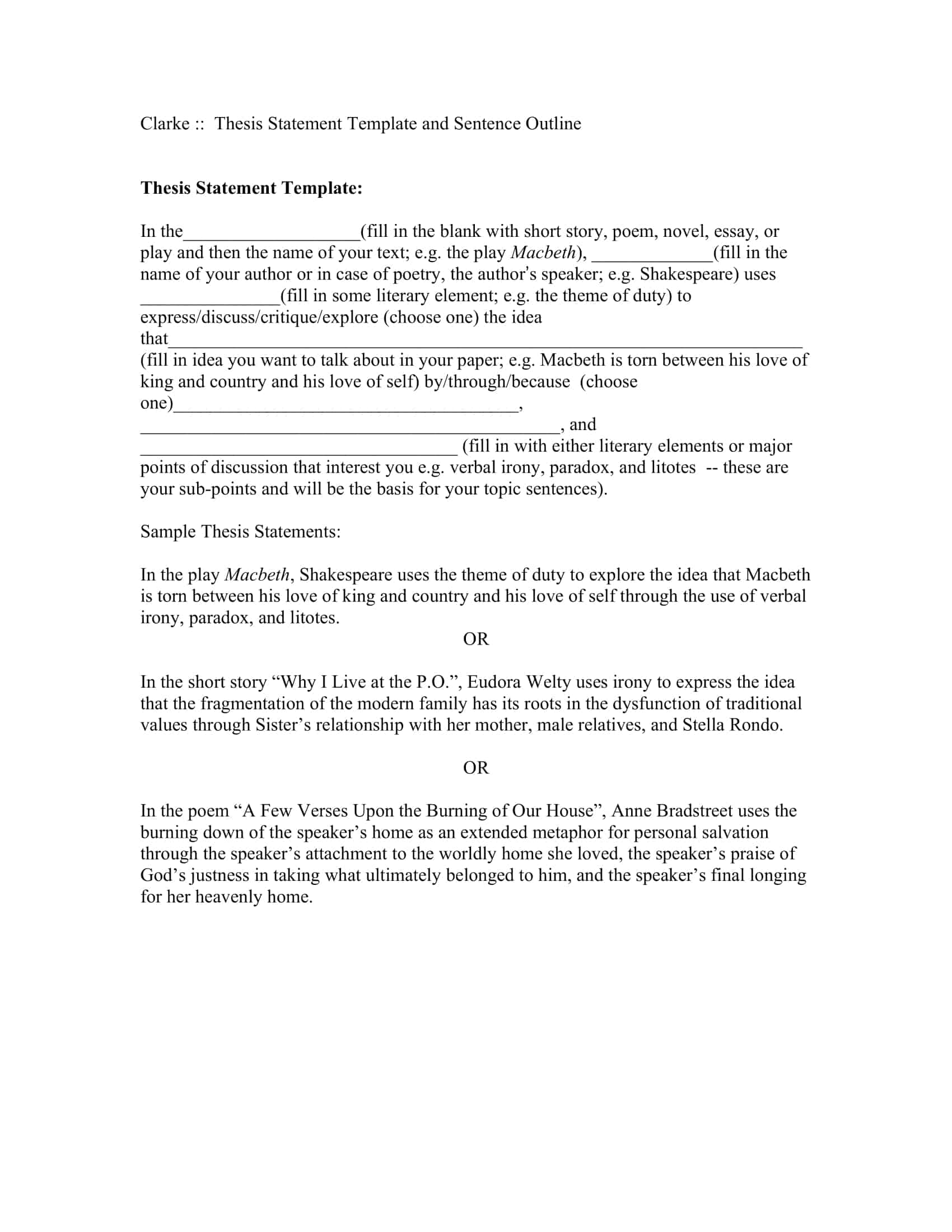

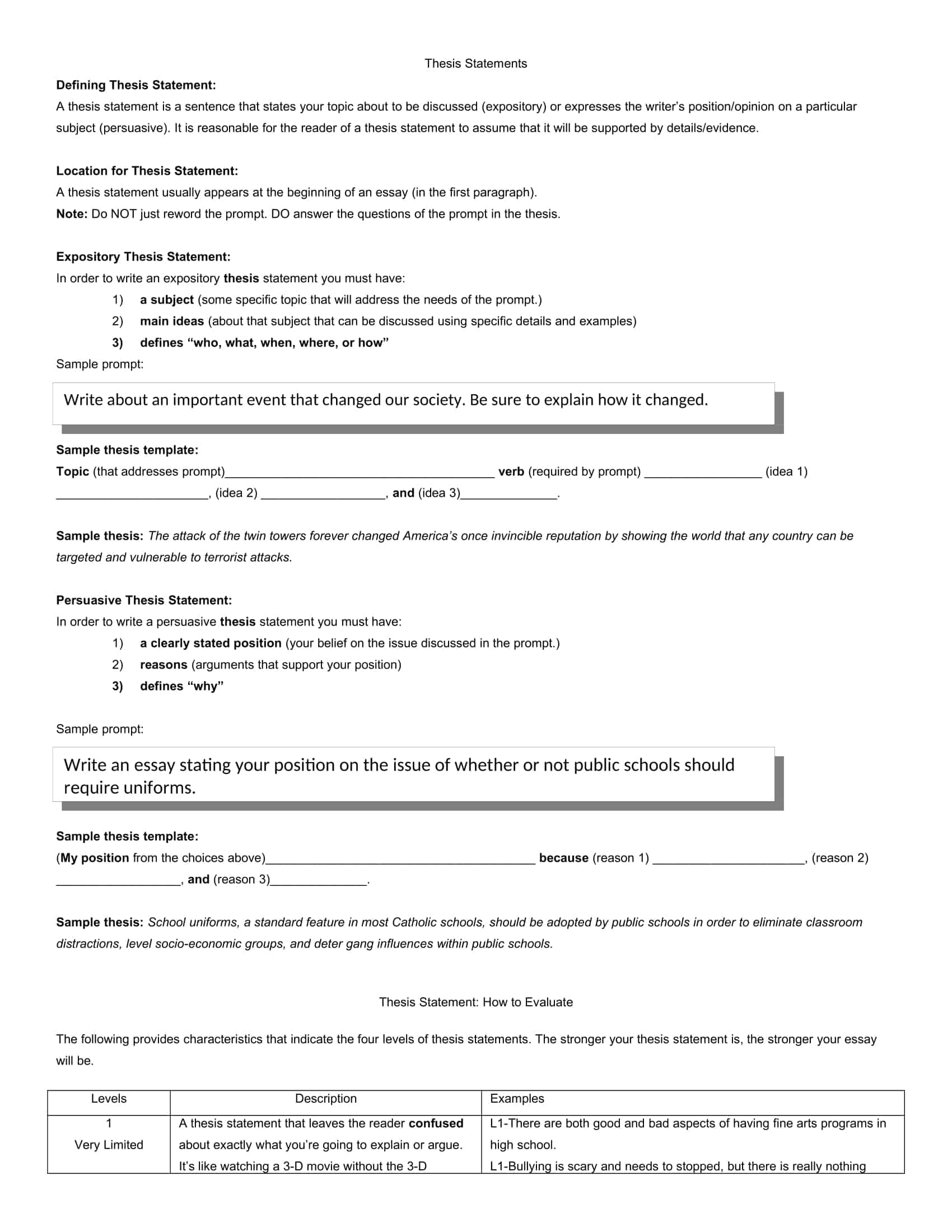




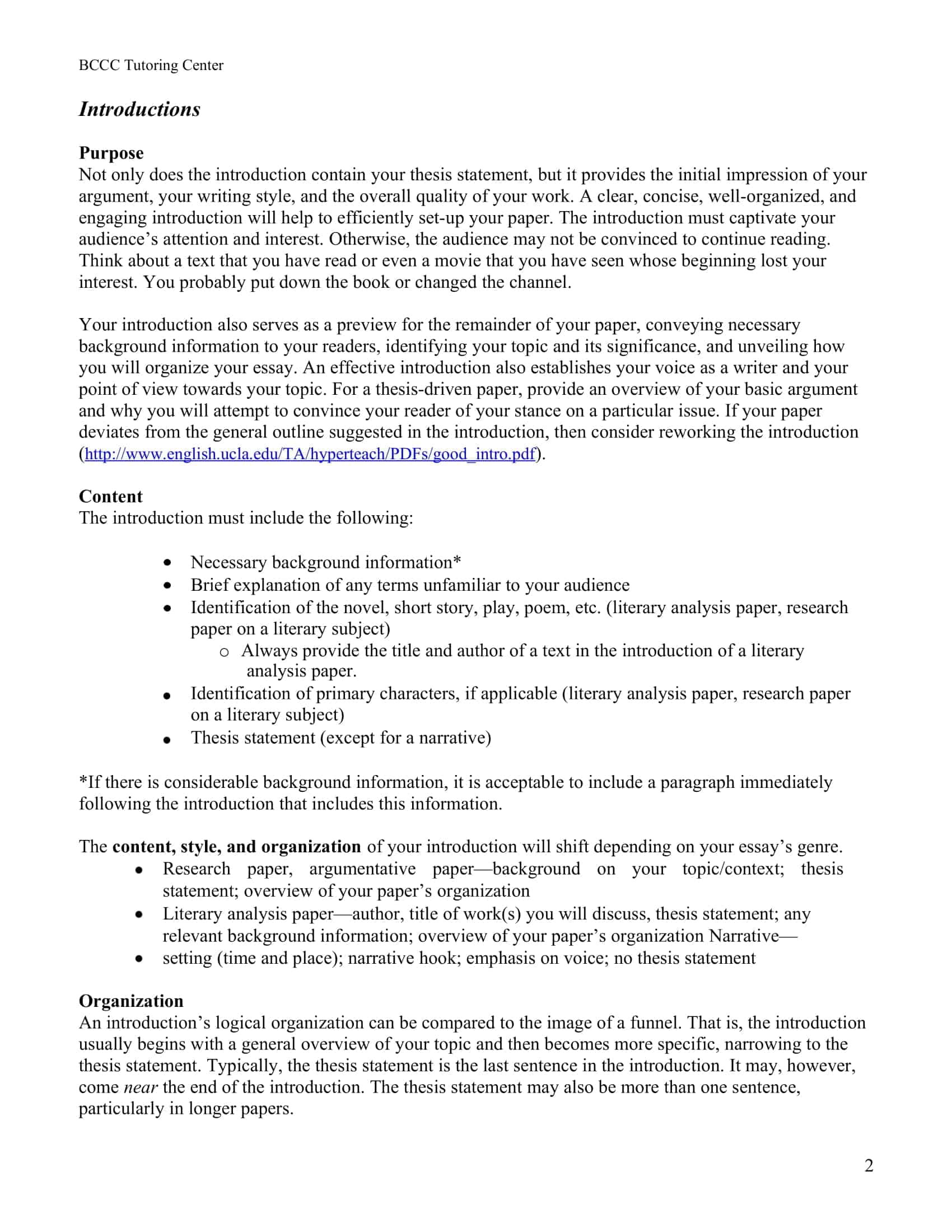



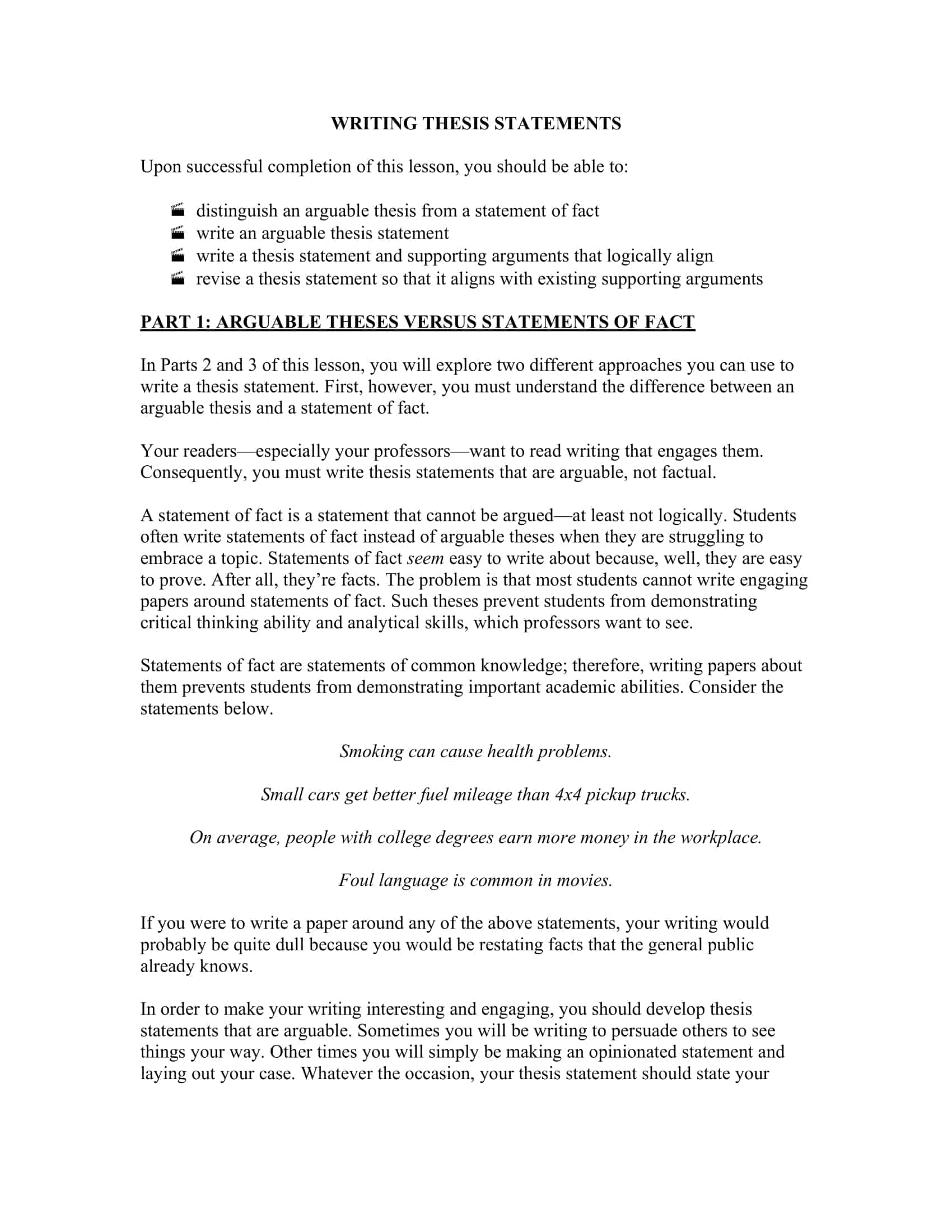






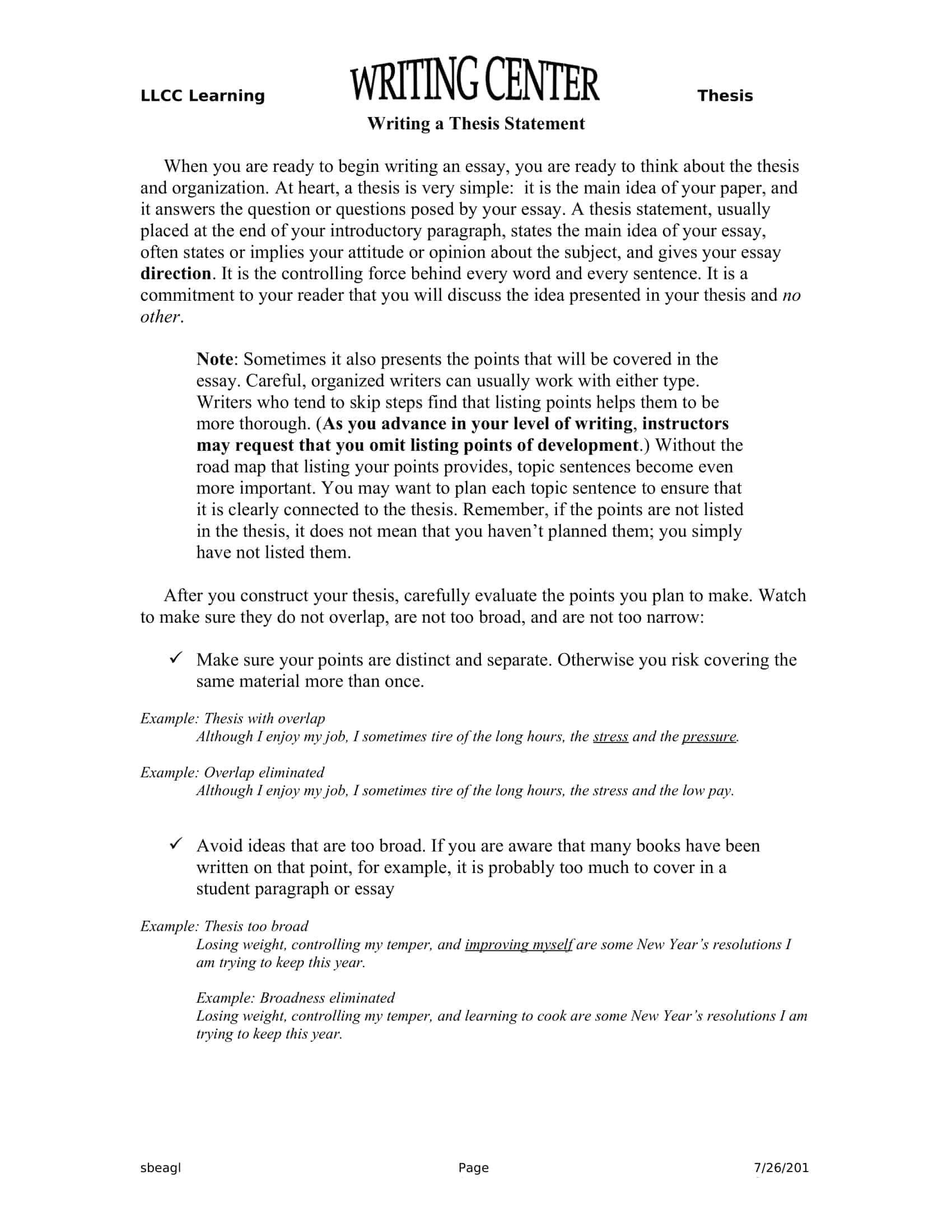



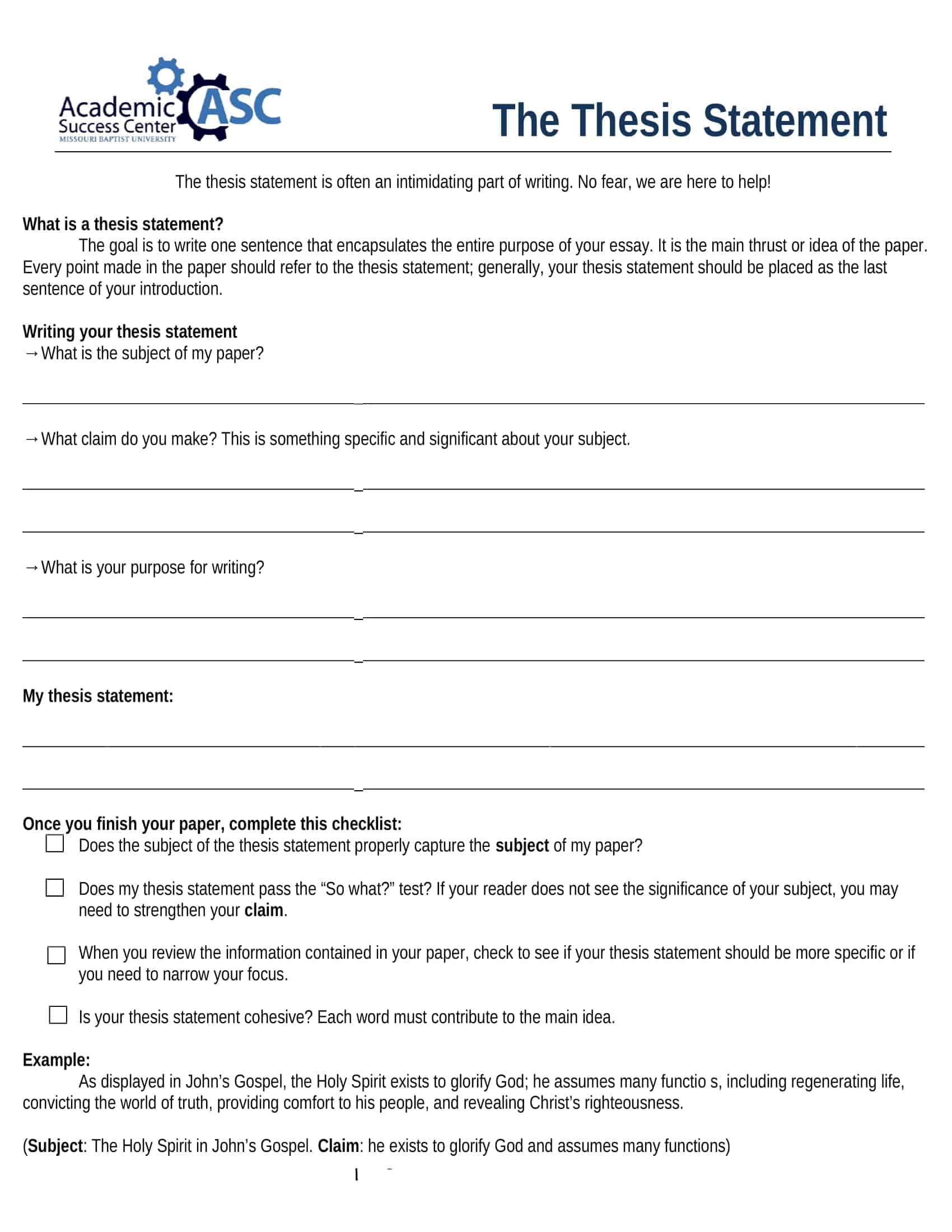









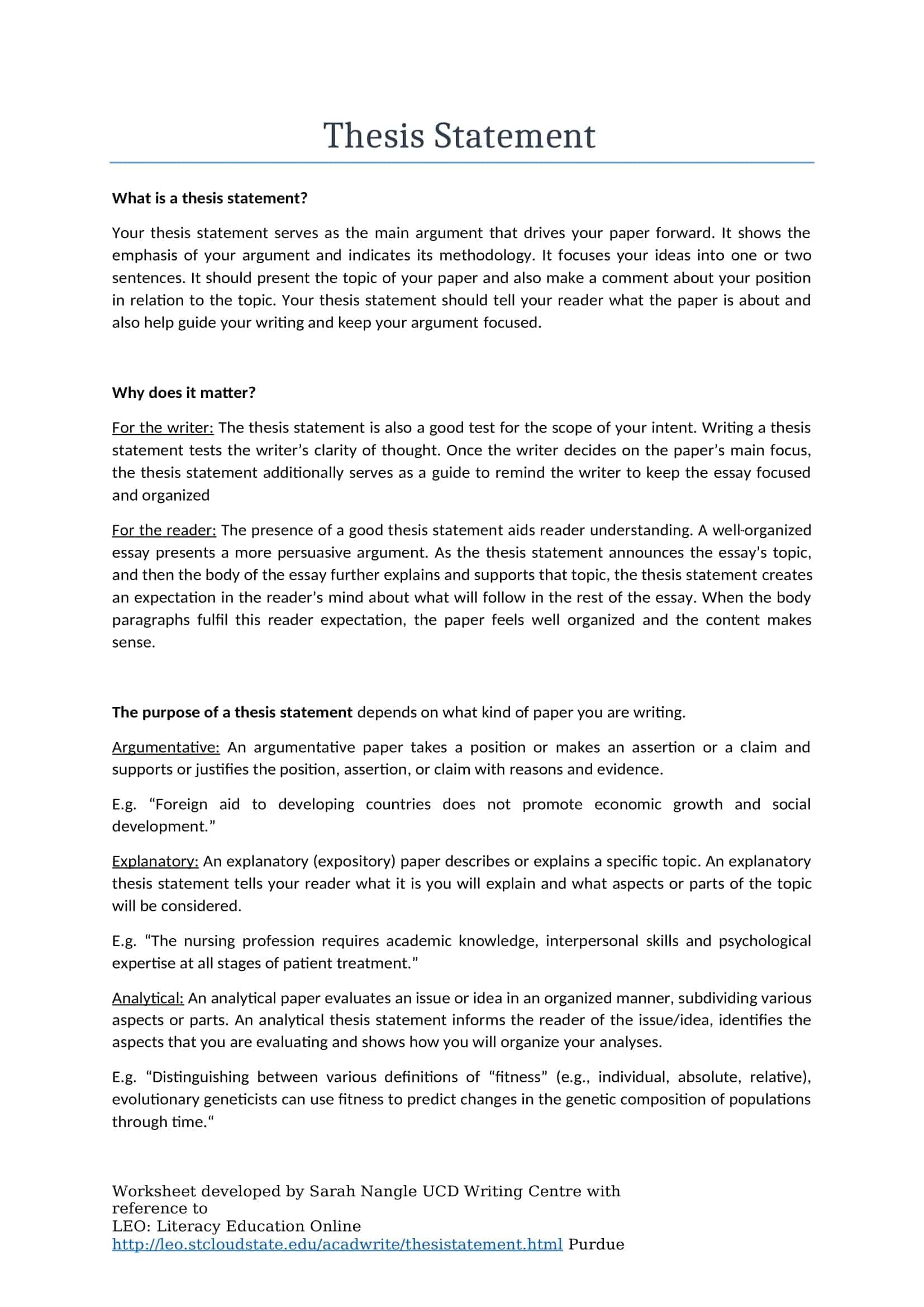













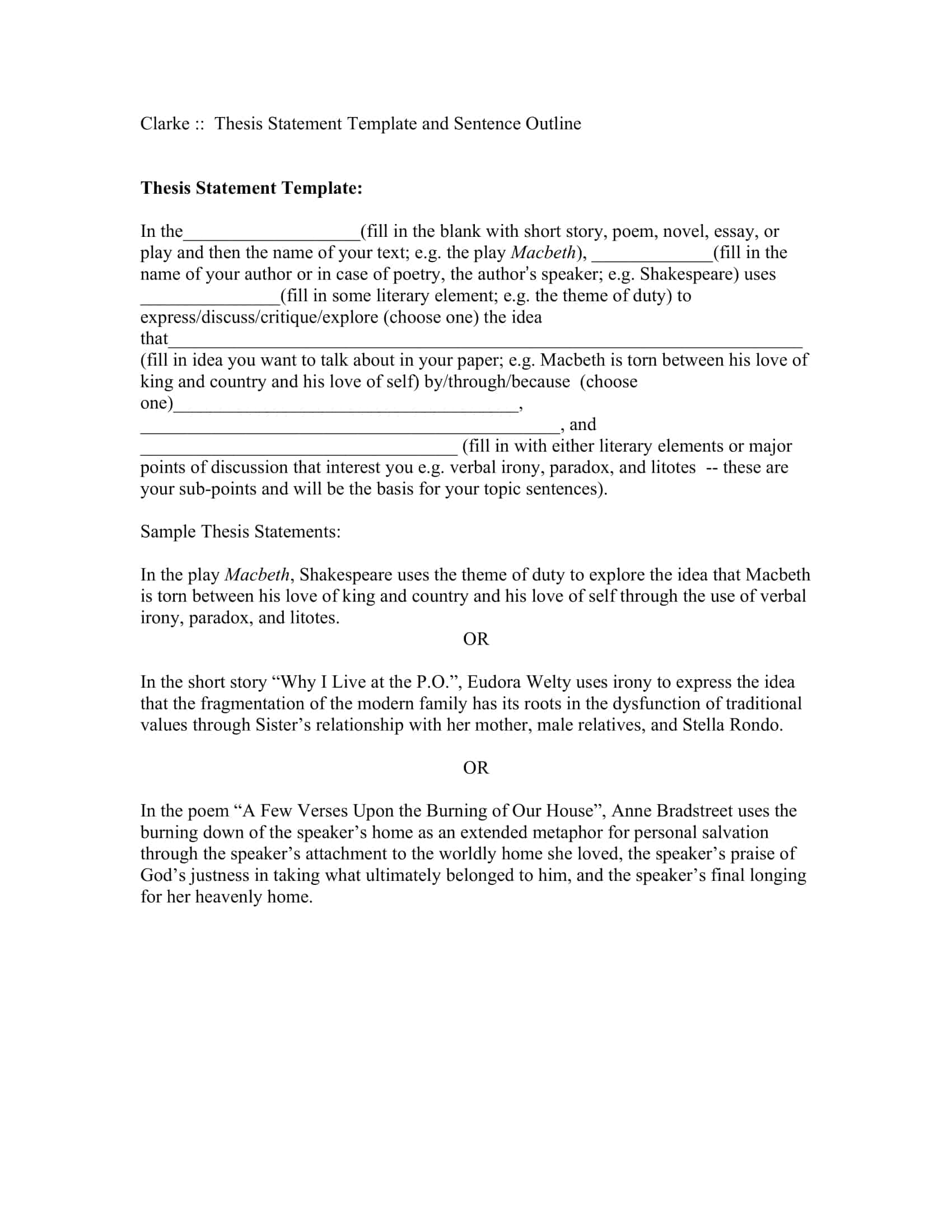
![Free Printable Landlord Statement Templates [Word, PDF, Excel] Example 1 Landlord Statement](https://www.typecalendar.com/wp-content/uploads/2023/05/Landlord-Statement-150x150.jpg)
![Free Printable Statement Of Need Templates [Grants & Scholarship] 2 Statement Of Need](https://www.typecalendar.com/wp-content/uploads/2023/04/Statement-Of-Need-150x150.jpg 150w, https://www.typecalendar.com/wp-content/uploads/2023/04/Statement-Of-Need-1200x1200.jpg 1200w)
![Free Printable Problem Statement Templates [PPT, Excel] Project, Business 3 Problem Statement](https://www.typecalendar.com/wp-content/uploads/2022/12/Problem-Statement-150x150.jpg 150w, https://www.typecalendar.com/wp-content/uploads/2022/12/Problem-Statement-1200x1200.jpg 1200w)
